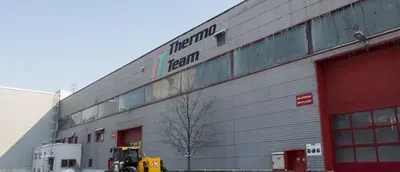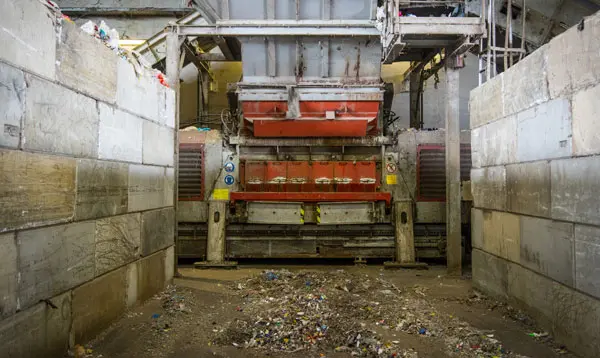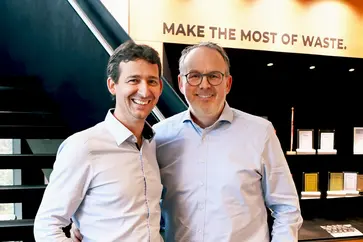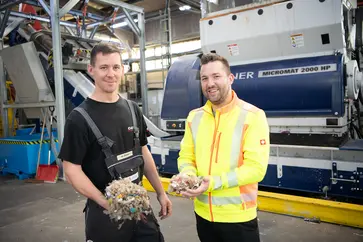15 years ago ThermoTeam started producing solid recovered fuels for the cement industry. Incredibly, one million tons of energy rich SRF have already left the production line designed entirely by Lindner-Recyclingtech. With this innovative facility for sustainable and environmentally friendly waste processing in Styria, Austria, cement manufacturer Lafarge has already been able to save 1.2 million metric tons of carbon dioxide (CO2). This is the amount of CO2 that the average car would emit while circumnavigating the earth approximately 230.000 times.
ThermoTeam Alternativbrennstoffverwertungs GmbH in Feldkirchen near Graz is a joint venture between Lafarge Perlmooser Holding AG and Saubermacher Dienstleistungs AG. On February 28th, 2018 the company celebrated 15 years of successful SRF production at the Retznei site in Styria with guests from politics, business and research, and announced more trailblazing investments in the future. The innovative SRF facility went into operation in June 2003; since then, it has already produced one million tons of high-calorific SRF from mixed municipal and industrial waste, which is then largely co-incinerated in the neighbouring Retznei cement works.
As ThermoTeam CEO Christian Lampl explained at the ceremony, the cement industry is making a valuable contribution to climate and resource protection by replacing hard coal or lignite with solid recovered fuel for energy production. A study carried out by Joanneum Research in Graz confirms that for every ton of SRF used instead of coal, carbon dioxide emissions are reduced by two tons. Cement manufacturer Lafarge has therefore been able to save 1.2 million metric tons of CO2 in the last ten years. In this context Hans Roth, founder of Saubermacher and chairman of the supervisory board, spoke of a sustainable success story: ‘ThemoTeam is an innovative, committed company that is investing in the promising idea of a circular economy and creates jobs in the Southern Styria region.’
An excellent concept
Lindner-Recyclingtech in Spittal an der Drau, Carinthia played a key role in this success story. From the planning stage, production and assembly of the system components to the inauguration and initial use of the machine, the leading supplier of shredding solutions for the waste processing and recycling industry with a focus on the SRF market was involved from the very beginning and designed the complete processing line.
Primary and secondary shredders, ferrous and non-ferrous separators, a wind sifter as well as feeding systems, conveyor and discharge belts were supplied and installed. The plant was approved in accordance with the Austrian Waste Management Act’s (AWG) strict criteria to comply with emission and immission limits. As early as 2003 ThermoTeam was awarded the Environmental Protection Award of the Province of Styria for their work. Since 2004 the company has been a certified waste management company.




